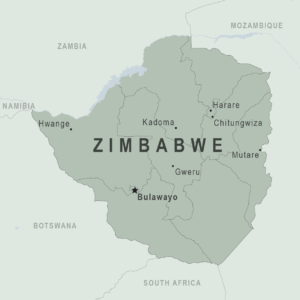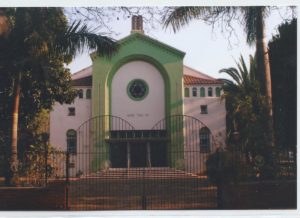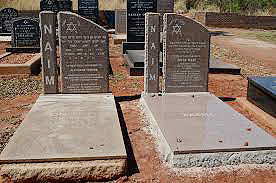 Jews have settled in Zimbabwe, formerly Rhodesia since the 19th century. Settlers have come from such places as Russia, Lithuania, Rhodes, Belgian Congo, Germany, South Africa and the United Kingdom – either as a result of trade or to excape misfortune. By 1961, the Jewish population peaked at 7,060.
Jews have settled in Zimbabwe, formerly Rhodesia since the 19th century. Settlers have come from such places as Russia, Lithuania, Rhodes, Belgian Congo, Germany, South Africa and the United Kingdom – either as a result of trade or to excape misfortune. By 1961, the Jewish population peaked at 7,060.
At the time there was a multitude of Jewish activity which included day schools, community centres, youth movements, sports clubs, cemeteries, synagogues, old age homes and women’s organisations.
 Many emigrated during the Rhodesian Bush War in the 1970s. Some Jews chose to stay behind when the country was transferred to black majority rule and renamed Zimbabwe in 1980, buy by 1987, only 1,200 Jews remained. Most emigrated to Israel or South Africa, seeking better economic conditions and Jewish marriage prospects. Until the late 1990s, rabbis resided in Harare and Bulawayo, but left as the economy and community began to decline. Today there is no resident Rabbi.
Many emigrated during the Rhodesian Bush War in the 1970s. Some Jews chose to stay behind when the country was transferred to black majority rule and renamed Zimbabwe in 1980, buy by 1987, only 1,200 Jews remained. Most emigrated to Israel or South Africa, seeking better economic conditions and Jewish marriage prospects. Until the late 1990s, rabbis resided in Harare and Bulawayo, but left as the economy and community began to decline. Today there is no resident Rabbi.
Further problems ensued with the Mugabe government in the 1990s. In 2002, after the Jewish community’s survival was threatened by a food shortage and poverty in the country, the mayor of Ashkelon, a city in southern Israel, and offered them assistance in settling in Ashkelon. Several Zimbabwean Jews accepted his offer.
 In 2003 the Bulawayo Synagogue burned down. Prayers are generally held at the Sinai Hall or Savyon Lodge in Bulawayo. In Harare the Sephardic Community have their own Synagogue and the Ashkenazi Community have a separate synagogue. Today because of small numbers of congregants the prayers alternate between the two synagogues.
In 2003 the Bulawayo Synagogue burned down. Prayers are generally held at the Sinai Hall or Savyon Lodge in Bulawayo. In Harare the Sephardic Community have their own Synagogue and the Ashkenazi Community have a separate synagogue. Today because of small numbers of congregants the prayers alternate between the two synagogues.
Today, about 60 Jews live in Zimbabwe, chiefly in Harare and Bulawayo. There are no Jews remaining in Kwekwe, Gweru, and Kadoma. Two-thirds of Zimbabwean Jews are over 65 years of age, and very few are children.